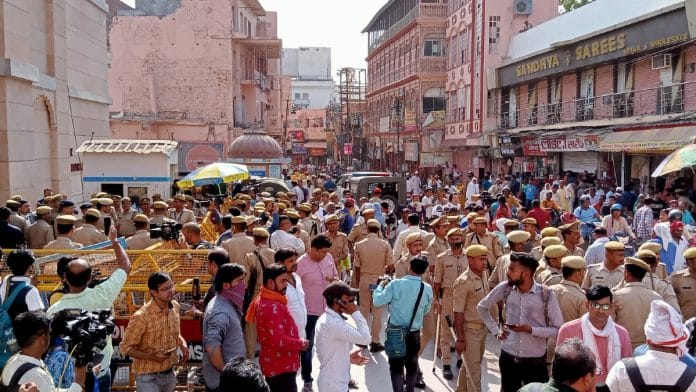As the Gyanvapi controversy rages, the Muslim Personal Law Board has appealed to Muslims across India that they should be ready, at all times, to protect mosques. The Board has also requested the imams of all mosques to come out and speak up on this subject. In the backdrop of the prevailing tense atmosphere, such communal and unconstitutional appeals by the Board can harm the social harmony. These immature appeals can endanger the poor and vulnerable sections of both Hindu and Muslim populations, leaving a bad influence on them. Not to forget that law and order is the responsibility of the State and not of any religious organisation or people belonging to a particular religion. Apart from the AIMLB, the Ashraaf community, the self-proclaimed foreign-origin ruling class among the Indian Muslims, too is making claims about launching a nation-wide agitation and jail bharo abhiyan. It seems that Ashraafs are trying to give communal color to the whole matter just like the Babri Masjid dispute.
In the wake of this serious situation, efforts should be made from both sides (Hindus and Muslims) to build an atmosphere of harmony and brotherhood so that the issue can be resolved without the country witnessing any untoward incident.
Also read:
The indigenous Pasmanda — Muslims of Indian origin — should come forward and adopt the “Misake Medina” and “Sulh Hudaibiyya” teachings of their Messenger Muhammad. And keeping their country’s interest above all, they should give up their claim on the Gyanvapi Mosque for the sake of social harmony. At the time of ‘Sulh Hudaibiyya“, the reconciliation efforts initially appeared causing harm but in the longer run, yielded good results for the social harmony of Arab society.
In the current dispute, the Hindu side seems to have a stronger case — for them, the Gyanvapi is not any other shivalaya; it is one of the twelve Jyotirlingas (places considered to be of utmost importance for the followers of Saivaite sect). For Muslims, it is like any other mosque. Gyanvapi is to Hindus what Khan-e-Kaaba, Masjid Nabvi and Haram Imam Ali are for the Muslims.
If forsaking the claim on just one mosque can save lives and property of thousands of people who might come in danger due to a vitiated communal atmosphere, then it must be done. Giving up the claim wouldn’t just benefit the country and society, but will also be in accordance with the ethos of Islamic teachings. The indigenous Pasmandas need to realise that the Prophet was sent in this world as an ‘agent of mercy’ (Rehnuma).
Then again, Banaras is the land of Kabir—the ancestor of indigenous Pasmanda, who rose above the veneer of religion and pomp associated with it, worked hard to bridge the gap between Hindus and Muslims. It is not too difficult for Pasmandas, the natives of Banaras, who have grown up listening to bell chimes of the temples, and engulfed in the fragrance that came out of them every morning.
Nazir Banarasi, a native Pasmanda poet from Varanasi, has rightly said:
Main wo kashi ka rahne wala Muslaman hoon ke jisko e nazir,
Apne ghere me liye rahte hain ‘butkhane’ kai
Because the matter is in the court, it will reach its legal conclusion some day. When a decision comes, there should be no hesitation in accepting it.
Also read:
The government should also make sure that Gyanvapi, like Babri Masjid, doesn’t become a larger public issue. Only the local Muslims (Ashraf and indigenous Pasmandas) of the Gyanvapi area, and those who offer namaz, should be considered stakeholders in the matter. The government should try to solve this issue at its own level by taking all stakeholders into confidence. Making all Muslims of India a party to the dispute would not be prudent.
The media should also show some restraint and not run reports or programmes that are likely to hurt religious sentiments.
If the issue is resolved in an atmosphere of peace and harmony, then it will prove to be a good example for generations to come.
Faiyaz Ahmad Fyzie is author, translator, columnist, media panelist, social activist, and doctor by profession. Views are personal.
Translated by Ram Lal Khanna from the original in Hindi and edited by Anurag Chaubey.






